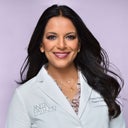Hello, and thank you for your question. You had gastric sleeve surgery five months ago and lost 75 pounds. You are considering having a male tummy tuck with a six-pack. When contemplating plastic surgery is important to reach your goal weight and have a stable weight for at least 2 to 3 months before considering plastic surgery. To reach your goal, it may take longer than five months after your gastric sleeve surgery. Therefore, it is important to plateau before considering reconstructive plastic surgery after massive weight loss. You do not want to lose significant weight after your plastic surgery procedures because further weight loss could jeopardize your results and require expensive, unnecessary, and avoidable revisions.







